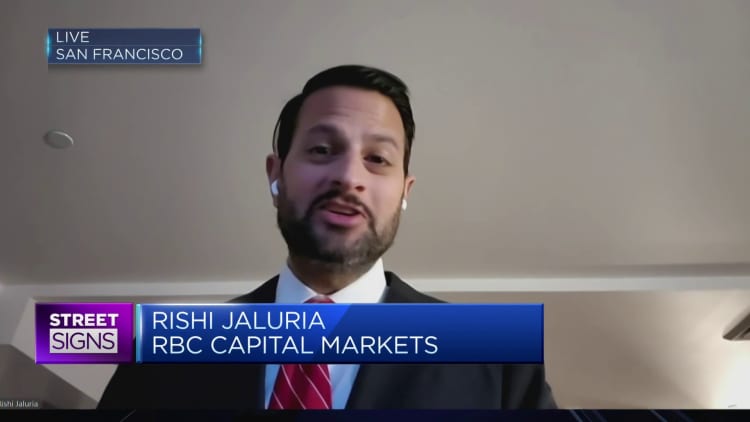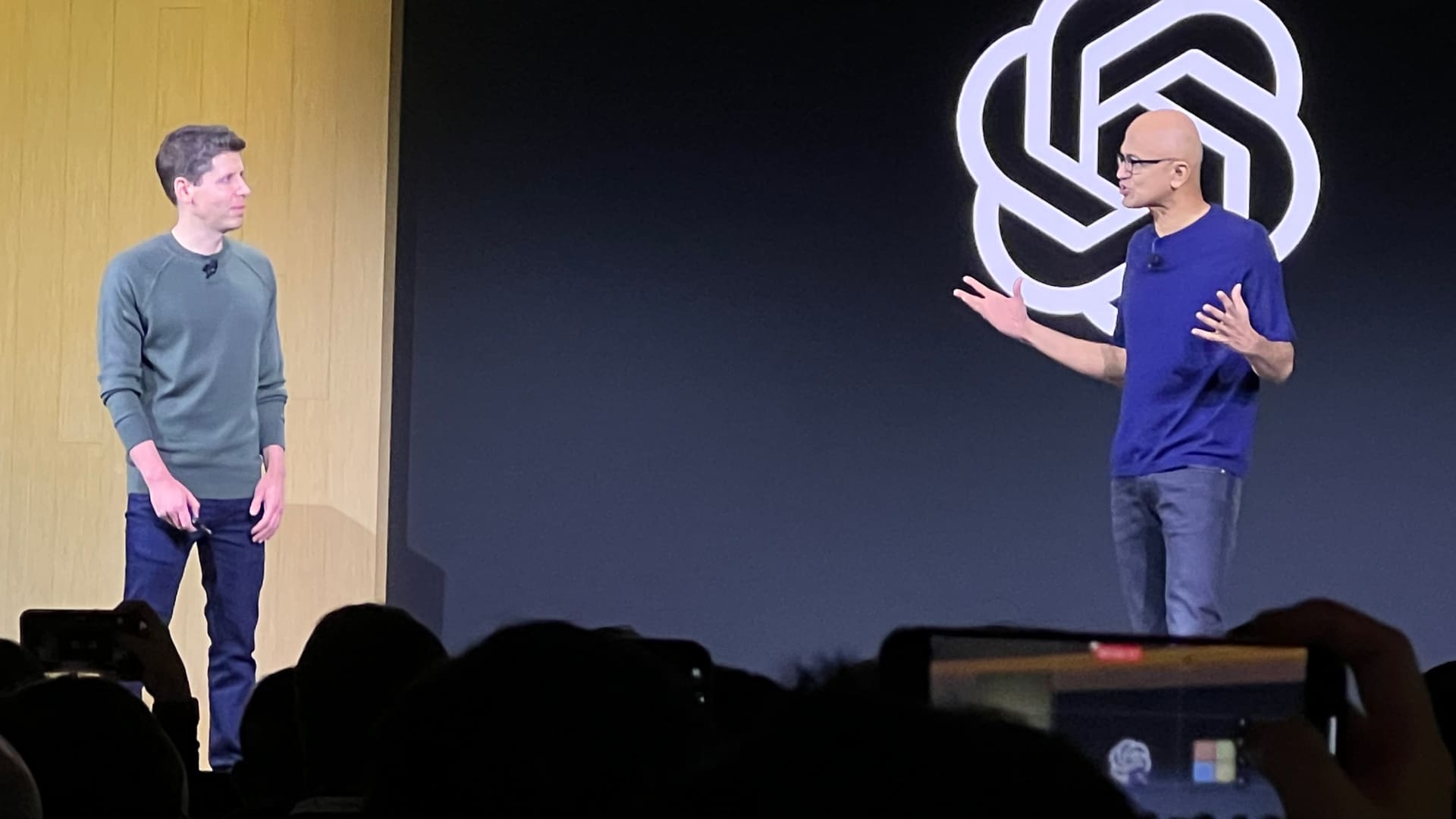OpenAI CEO, Sam Altman & and Microsoft CEO, Satya Nadella.
Hayden Field | CNBC
The past few days have been chaotic for the AI industry, with technology experts weighing what this could mean for the nascent sector and some of its key players.
OpenAI, the company behind ChatGPT which launched artificial intelligence into the mainstream late last year, said Friday that it was removing its CEO Sam Altman and making its technology chief Mira Murati interim chief executive in his place.
But before the weekend was even over, OpenAI appeared to change course, announcing that former Twitch chief Emmett Shear would take over from Altman instead, at least on a temporary basis.
Meanwhile, Altman himself has already found a new role leading a new advanced AI research team at Microsoft, where he will be joined by former OpenAI Board Chair Greg Brockman and several other employees.
But Altman’s move could simply be a case of “damage control” for Microsoft, according to Richard Windsor, founder of digital research company Radio Free Mobile. This is linked to Microsoft’s immense investments in OpenAI, he said on CNBC’s “Street Signs Europe” Monday.
Microsoft did not immediately respond to CNBC’s request for comment on the statement.
Microsoft began investing in OpenAI as early as 2019, initially with around $1 billion. That figure has ballooned since to an amount reported to be closer to $13 billion. Microsoft has also integrated OpenAI’s technologies in products like search engine Bing and various other software.
“A large amount of that value is tied up in the founders and in the engineers that are inside the company,” Windsor said.
Rishi Jaluria, managing director for software equity research at RBC Capital Markets, told CNBC’s “Street Signs Asia” on Monday that Altman aligns with Microsoft’s AI vision.
“The vison that Sam Altman has is kind of the vision Microsoft wants,” including commercializing and “having responsible AI but not handcuffing AI,” he said.
Meanwhile, other tech experts have been backing Microsoft CEO Satya Nadella’s swift move to hire Altman in-house.
The four-person board at OpenAI “was at the kids poker table and thought they won until Nadella and Microsoft took this all over in a World Series of Poker move for the ages with the Valley and Wall Street watching with white knuckles Sunday night/Monday early am,” Wedbush Securities tech analyst Dan Ives wrote in a note published Monday.
“We view Microsoft now even in a STRONGER position from an AI perspective with Altman and Brockman at MSFT running AI,” he added.
Aaron Levie, CEO of cloud-sharing and management company Box, said via X that it was “incredible execution by Satya in one of the most dynamic situations in tech history.”
Aviral Bhatnagar, an investor at Venture Highway, had a similar view.
“You now understand why Satya Nadella is one of the greatest tech CEOs of this generation,” he said in a post on X.
“Kept Altman in the fold, kept the transition as neat as possible, managed the chaos and the wild board decision making, didn’t destroy OpenAI. What a boss move.”
OpenAI’s future
Windsor suggested that further OpenAI employees may soon follow Altman to Microsoft, which he said could have detrimental consequences for OpenAI. This could even include OpenAI tech chief Murati who has been crucial in developing OpenAI’s products, he noted.
“If she goes off with Sam and the others to join Microsoft, what’s left of OpenAI? Arguably not much,” Windsor said.
Several OpenAI employees have also shared comments on X, often referencing that people are crucial for the company.
The relationship between OpenAI and Microsoft could also shift due to the developments, Jaluria said.
“The OpenAI relationship is absolutely critical to Microsoft and I think a lot of us were surprised that even after all the investment, Microsoft did not have a board seat. And I wouldn’t be surprised if coming out of this, Microsoft wants to have more of a say in this and control more of the destiny because absolutely their fortunes in AI are tied to OpenAI,” he explained.
“I do think that there are going to be some changes coming out of this, but ultimately Microsoft and OpenAI will be very important partners going forward,” he added.
‘Handled very badly’
The chaotic developments have also been criticized by Shear himself, the new interim CEO of OpenAI.
“It’s clear that the process and communications around Sam’s removal has been handled very badly, which has seriously damaged our trust,” he said in a post on X, formerly Twitter, in which he also confirmed he would step in as interim CEO.
Shear suggested he would launch an investigation to examine the process that led to the recent events and produce a report on them within his first thirty days at OpenAI.
This has been echoed by experts, including Windsor, who said that the situation could severely damage the company’s reputation and undermine public confidence in the company.
Meanwhile Wedbush Securities’ Ives called the weekend’s developments a “circus clown show,” and described it as a “coup attempt” which elevated Shear to interim CEO “in a move that will forever be viewed as a tainted move by OpenAI that caused chaos internally and externally.”
Elsewhere Nathan Benaich, general partner of Air Street Capital, added that the events showed “that no one is immune from the laws of corporate physics,” and “one bad decision” can have immense consequences.
“Considering Sam’s centrality to OpenAI’s vision and the personal loyalty he commands, this is the most baffling decision from an AI lab I’ve ever witnessed,” he said.

Image and article originally from www.cnbc.com. Read the original article here.

